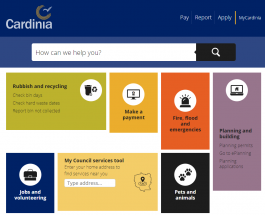
Residents in more than half of Queensland’s councils will soon be able to lodge council forms online, with self-service on multiple devices and the potential for instant messaging.
Under a major initiative, 41 of the Local Government Association of Queensland’s (LGAQ) member councils will transfer their websites to international website developer Jadu.
As well as enabling constituents to lodge and monitor various requests – from dog registrations and complaints to development applications – the platform could enable Queensland’s councils to switch on an instant messaging service, according to Suraj Kika, CEO of Jadu Software.
This automation, he says, has saved millions across United Kingdom councils.
“To be able to ask something of your local authority and know they’re working on it, to receive push notifications and work updates means you don’t have to call up. We’re removing that cost which means that over time the savings are substantial,” Mr Kika said.
Self-service: cutting red tape
The state’s local government peak says the project will improve the user-friendliness of council websites while improving efficiency and minimising bureaucracy.

Glen Beckett, general manager at LGAQ, says the platform allows councils to manage customer enquiries in real time and minimise over-the-counter processes.
“The user’s web experience will improve because of the new interface and increased mobility, with the ability to engage through smart devices and the option to transact with councils across a broader range of services,” he said.
It’s the first large-scale implementation of the Jadu platform across Australian councils, following an earlier uptake by Cardinia Shire Council, South Gippsland Shire Council and Fairfield City Council.
The transition could be complete as early as June 2019 and according to Mr Beckett there will be minimal disruption to the existing council websites.
Case study: Cardinia Shire Council
After it transferred to the platform last year, Cardinia Shire Council says it saw a considerable reduction in paper waste and an increase in the number of residents using their website as their preferred point of contact.
The council’s senior digital communications officer Peta Levett said that the transition has improved council workflows.

“Our statistics show that people come to the site and find what they need quickly and easily. Online service requests have increased significantly, and users have responded well to our increased number of online forms and payment options,” Ms Levett said.
Data aggregation
The large-scale move to the platform will enable the LGAQ to collect and analyse data across the participant councils, enabling it to identify and monitor service trends across regions.
It will also allow councils to “stream” and share data globally, enabling them to search in a global library of local government resources and learn from international best practice, Mr Kika said.
“It enables the downloading and reusing of information being utilised by councils all over world,” he said.
User expectations and global trends
The proliferation of digital media across the private sector has resulted in higher expectations among residents of the same quality of web service delivery in the public sector, Mr Kika said.
He pointed to the Canterbury City Council in the United Kingdom which is planning to digitise 85 per cent of its services by 2019.
As Government News reported last month, an analysis by Unisys found that half of the Australian respondents preferred online channels for engaging with all levels of government.
Mr Beckett said that even in remote and rural council areas in Queensland, the proliferation of smart devices continued to grow at a rapid pace.
“For a lot of councils the ability to have the web pages optimised in mobile platforms will be a significant benefit.”
He said that smaller councils face particular challenges in adapting to the rapid development of digital technology.
“Larger councils are certainly more mature in their approach to the provision of digital services to their communities.”
